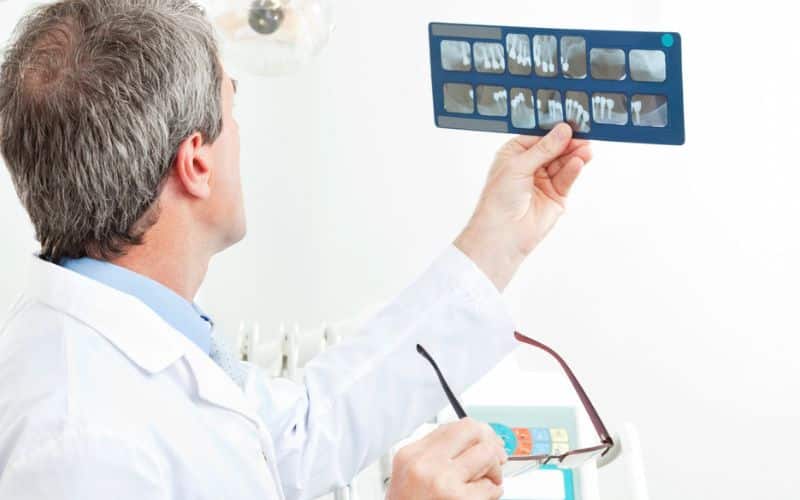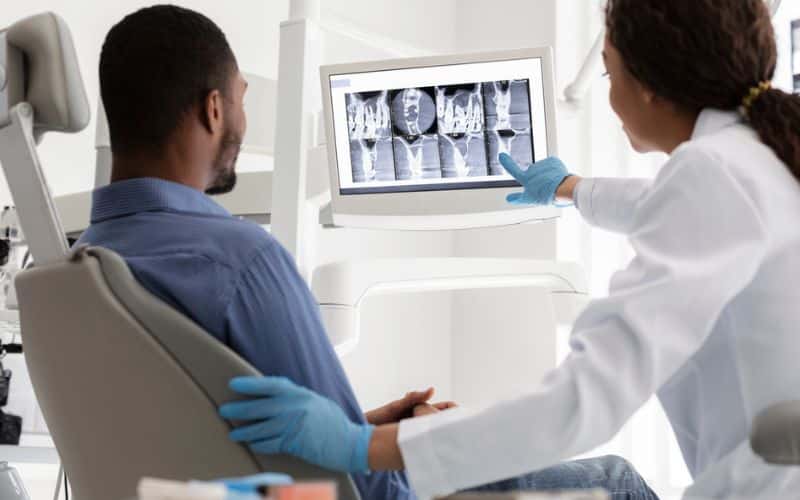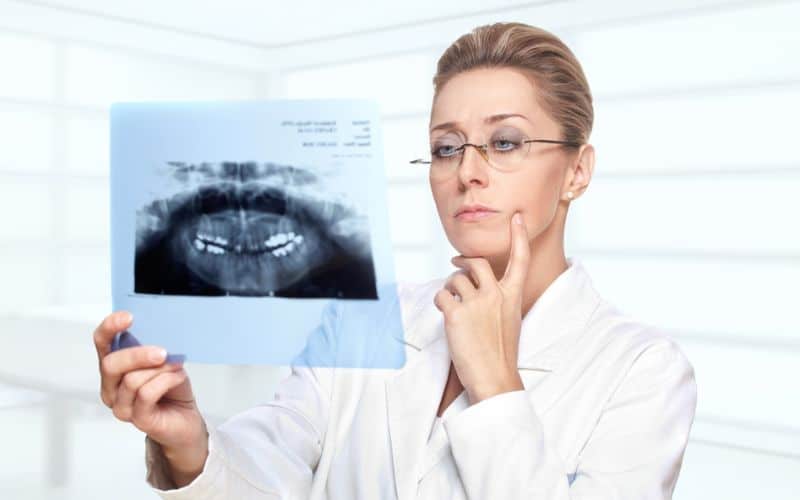Dentists use X-rays to detect problems that cannot be seen with the naked eye. They also help to identify abnormal growths in the mouth or jaw and catch them at an early stage, which can save patients money and discomfort.
X-rays are considered safe for adults and children, and even pregnant women can get them without worrying about radiation harming the fetus. However, if a dentist refuses to take X-rays, they may be liable for dental negligence.
X-rays are a valuable diagnostic tool
X-rays are an invaluable diagnostic tool that help your provider notice problems with your bones and teeth before they cause serious symptoms. They can also spot problems that a visual examination cannot, such as dental cavities and tooth decay. X-rays can show evidence of bone fractures and infections. They can also reveal a variety of medical conditions, including osteoporosis, heart disease and lung diseases. In some cases, X-rays can even detect cancer cells and foreign objects that may have been swallowed or inhaled.
During an X-ray, a machine produces a safe amount of radiation that passes through the body and records an image on a specialized plate. You will not feel any discomfort or pain during the procedure. You will be asked to remain still and avoid moving so that the images are clear. You should let your provider know if you are pregnant, because this can affect the results of an X-ray.
With today’s technology, the amount of radiation you receive from an X-ray is extremely low. In fact, it is about the same amount that you would receive in a day from natural background radiation. If you are worried about radiation exposure, ask your dentist about alternatives. They may be able to reduce the number of X-rays you need or use different types of X-rays that require less radiation.
They are safe

An X-ray is a painless procedure that uses safe radiation to create images of the inside of the body. These images can detect many health conditions, including dental problems. There is a small risk of radiation exposure, but the benefits of X-rays far outweigh this risk. The amount of radiation you receive during an X-ray depends on how much of your body is exposed and the number of X-rays you have over time.
The radiation used for X-rays is very small compared to the natural radiation we are exposed to on a daily basis from the sun, soil and other sources. It is important to have a routine X-ray of your teeth to check for cavities and other dental issues.
During an X-ray, you will need to stay very still so the image doesn’t blur. You may be asked to lie on a table or stand in different positions depending on the area being examined. The entire process will take just a few minutes for simple X-rays. For more-involved X-rays, you might need to drink a liquid called contrast medium (barium or iodine) that helps the image show up better on the film.
X-rays are also safe for pregnant women, but it is important to let your doctor know you are pregnant before the exam. You will be given a lead apron to protect the baby from radiation and you may need to remove clothing with buttons or zippers.
They are not required by law

X-rays, formally known as radiographs, are imaging procedures that allow healthcare providers and dentists to see bones, tissue, and hidden surfaces of teeth. The procedure can also show dental problems that are not visible with a visual exam, such as cavities or gum disease. It also helps dentists plan treatment for patients and ensure that the work they do is done correctly. X-rays are quick and easy to take and are covered by dental insurance.
While there is no statutory requirement as to how often a dentist should take X-rays, the American Dental Association (ADA) guidelines suggest that they should be taken only when clinical findings or patient history indicate the need. Patients have the right to ask about the frequency of X-rays that are necessary for their care. They also have the right to request a copy of their X-rays, which will usually be provided free of charge. However, they should keep in mind that the original X-rays belong to their healthcare provider and are protected under HIPAA regulations.
Many people are concerned about the amount of radiation that is used to take a X-ray. It is important to note that the amount of radiation you receive during a dental X-ray is very low. A typical set of four bitewing X-rays exposes you to about.005 millisieverts of radiation, which is about the same amount of radiation you get from natural sources every day.
They can be a source of liability

X-rays use very low amounts of radiation, but they can be harmful if not used correctly. While it is important to get regular x-rays, they should be taken only when necessary and should be accompanied by a protective lead apron and a thyroid collar. X-rays can reveal hidden cavities and other abnormalities, such as cysts or tumors. In addition, x-rays can detect calcified plaque, which is hard to see with the naked eye. Using x-rays to identify these problems early can help prevent serious complications later on.
It is important to remember that a patient always has the right to refuse a treatment or procedure. However, if a dentist does not follow proper safety standards or if he or she knowingly provides inadequate treatment, the patient may have a claim for negligence.
Many dental practices have made the switch to digital imaging, which uses electronic sensors instead of film. The images are displayed on a computer screen, and the dentist can enlarge or magnify them to get a more detailed view. In addition, digital x-rays expose patients to less radiation than traditional ones.
Typically, a patient has to pay for copies of their records, but a dentist might be willing to waive the cost if they have received a complaint. This gesture can be a good way to build rapport and resolve the problem without litigation. In addition, HIPAA regulations and state laws require dentists to provide their patients with copies of their medical records, including x-rays.


